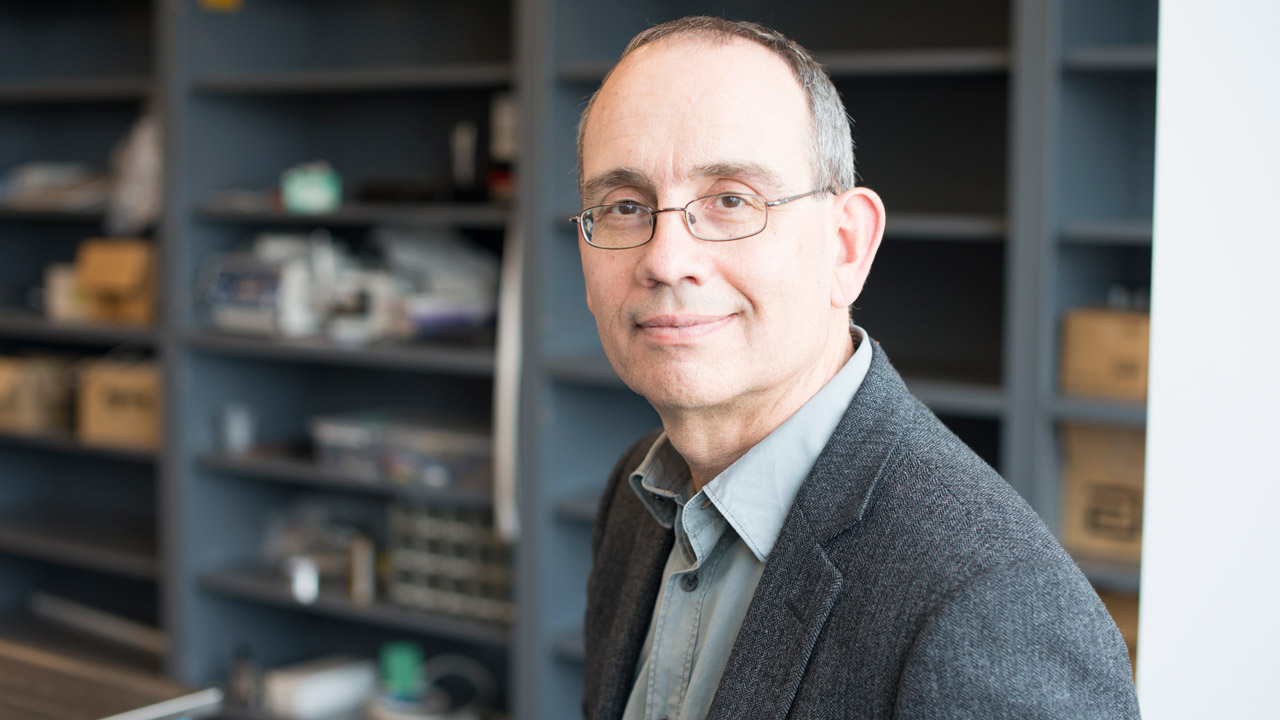Pioneering science rewarded
Three science teams at Sunnybrook Research Institute (SRI) have received 2017 Innovation Fund grants from the Canada Foundation for Innovation (CFI). Overall, the CFI contributed more than $6.6 million to advance the research carried out by SRI scientists.
“The proposals that the CFI has funded centre on trailblazing work. Research into image-guided therapeutics is a field in which SRI leads globally. This investment will help us to remain at that vanguard,” says Dr. Michael Julius, vice-president of research at SRI and Sunnybrook. “I applaud the hard work of the scientists and their teams who made this happen.”
Dr. Kullervo Hynynen, senior scientist and director of Physical Sciences, was awarded $2,510,000 to develop further focused ultrasound (FUS) technology. Hynynen, who pioneered the development of the noninvasive technology decades ago, will work with fellow SRI researchers, including Drs. Isabelle Aubert, Sandra Black, David Goertz, Simon Graham, Robert Kerbel, Nir Lipsman, JoAnne McLaurin, James Perry and Greg Stanisz.
The funds will be used to upgrade 3T MRI and FUS systems, and to purchase equipment to enable ultra-high-speed video microscopy. Building on a long list of firsts in the field, Hynynen and his team will engineer the next generation of MRI-guided FUS technology for the brain. The research goes from basic science to clinical translation, with the ultimate aims of developing new commercial devices and leading first-in-human clinical trials of this powerful new technology.
Hynynen’s proposal was exceptionally well received by the committee charged with reviewing it. It was deemed to exceed significantly the objectives in the areas of global leadership, research capacity and benefits to Canadians, a rare feat.
Another senior scientist in Physical Sciences to secure an Innovation Fund was Dr. Greg Czarnota, who is also director of the Odette Cancer Research Program. As project leader, he garnered $3,231,400. Rounding out the team are SRI researchers Drs. Stanley Liu, Andrew Loblaw, Eileen Rakovitch, Arjun Sahgal, Stanisz and Danny Vesprini, along with collaborators elsewhere in Toronto and in Utrecht.
Together, they will work to develop better radiotherapy technology. Among these is a unique device that pairs a magnetic resonance linear accelerator (MR-linac) with a FUS therapy system. The platform will allow clinicians to use FUS with microbubbles while administering radiation under MRI guidance. Czarnota’s research has found that injecting microbubbles into the circulation during treatment can increase tumour radiosensitivity 40- to 60-fold. Czarnota says the investment will enable him to “conduct important first-in-human research in cancer patients to make their treatments more potent.” He adds that without this funding the specialized equipment would be unobtainable.
Dr. Graham Wright, senior scientist in Physical Sciences and director of the Schulich Heart Research Program, also received an Innovation Fund. With the $869,131 he was awarded, he will work with SRI cardiac researchers Drs. Brian Courtney, Eugene Crystal, Nilesh Ghugre, Mihaela Pop, Sheldon Singh and Brad Strauss, along with colleagues at the University Health Network, to develop imaging technologies and therapeutics to treat people prone to heart failure and sudden cardiac death.
“The CFI-funded infrastructure expansion will facilitate ‘clinical-grade’ cardiac electrophysiology characterization and interventions, as well as cardiac stem cell therapy development and evaluation in preclinical models, a critical step toward first-in-patient studies,” Ghugre says.
Minister of Science Kirsty Duncan announced the recipients—117 new projects worth $554 million across 61 institutions—Oct. 12, 2017 in Winnipeg, Man. “Our government understands that scientists need to have the best labs and tools if they’re going to make discoveries that will pave the way to a brighter future for all people,” says Duncan. “That’s why today’s funding announcement is so important; it gives scientists and their students the opportunity to further their research in areas where Canada has a competitive advantage.”
“The Innovation Fund encourages institutions and its researchers to think big and strive to be global leaders by conducting world-class research,” says Dr. Roseann O’Reilly Runte, president and CEO of CFI. “With this support, institutions can build on their current research strengths and set their sights on accelerating research that will create social, health, environmental and economic benefits for all Canadians.”
The CFI provides up to 40% of the total cost of a project. A further 40% is sought from the institution’s home province, with the remaining 20% provided by the institution.
In a nutshell
- The Canada Foundation for Innovation has awarded more than $6.6 million to SRI scientists.
- The grants will be used to buy state-of-the-art research infrastructure that in some instances will be unique.
- The proposals will advance research into image-guided therapeutics.



